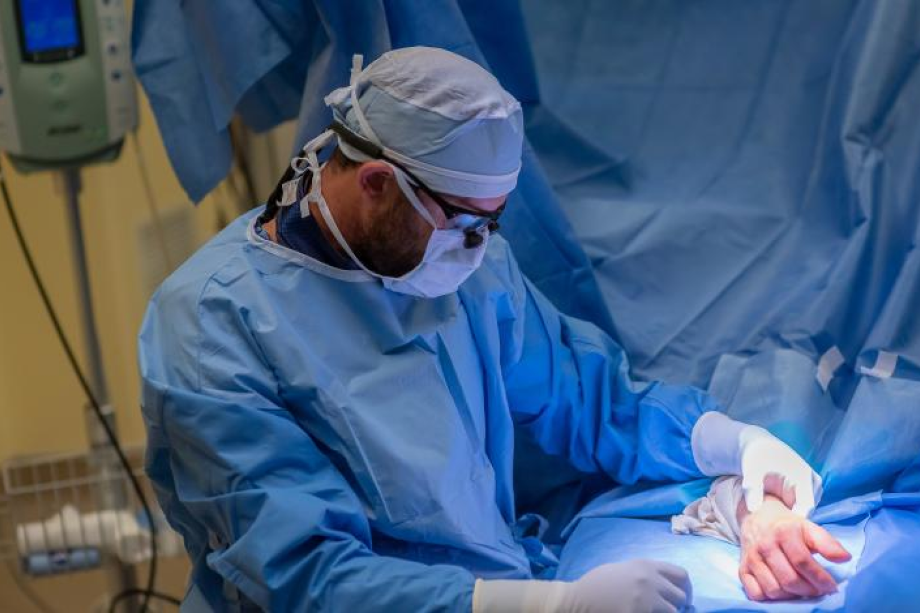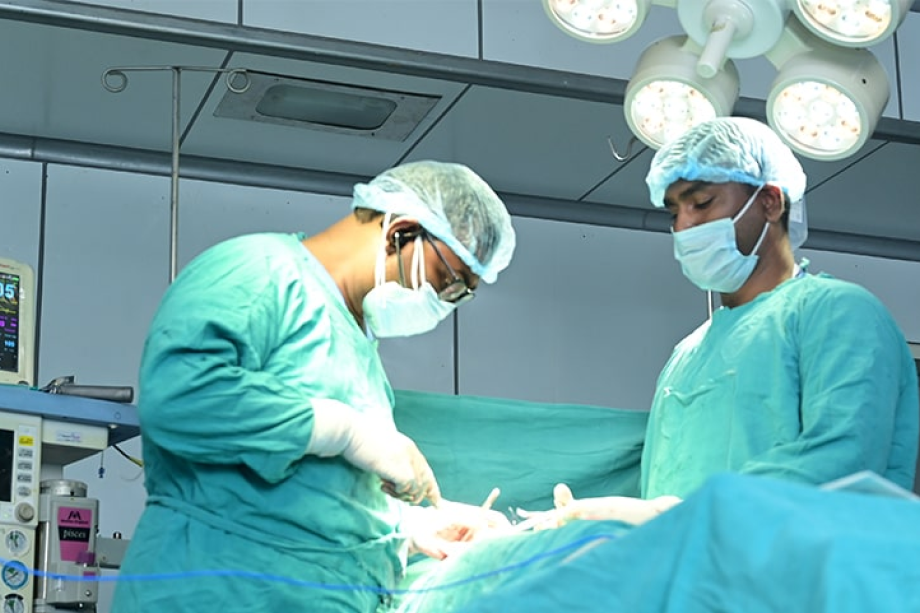How to become a hand surgeon in India: a detailed explanation
Our hands are essential to performing our basic activities in life from writing a letter or holding a mug and whatnot. But any problem with the hand will make even our slightest task look harder. So it’s essential to cure the problem to get back to normal life. For which you require the help of a well-trained hand surgeon. Hand surgeons can be orthopedic, plastic, or general surgeons who specialize to solve problems with your hand and upper extremity( which includes wrists, forearms, or shoulders). According to the Indian Society of Surgery for Hands, there are only 700 registered members for a population of around 1.4 billion. Adding to that medical tourism in India is growing due to high-quality treatment at a lower cost with increasing demand for specialties in cardiology, and orthopedics, including knee replacement surgery.
So it’s visible that there is a huge demand for hand surgeons in the country. As youngsters are showing interest in hand surgery as a subspeciality it’s essential to have a more clear and deeper understanding of the opportunities available as a hand surgeon.
Here I will be discussing what a hand surgeon does, who is an orthopedic surgeon? How to become an orthopedic surgeon and many more. So I request you to stay with me with full attention till the end of the article to clear your doubts.
Let’s start from the bottom
What actually a hand surgeon does and what conditions does he treats?
Hand surgeons focus on disorders and injuries of skin, nails, muscles and tendons, nerves and joints, bones, and ligaments of hands. They take the necessary steps to cure the pain and restore the normal function of the hands. They specialize in preventing, diagnosing, and treating injuries. Some treat adults, some treat children and some treat both based on their specialization.
Some of the common conditions treated by hand surgeons include:
- Wrist pain
- Carpal tunnel syndrome
- Broken hand and wrist
- Traumatic injuries in hands and wrists
- Sports injuries
Hand surgeons don’t have to operate always they also provide non-surgical treatment such as physical therapy.
Students aspiring to be a hand surgeons must complete medical school after which they enter a residency program for clinical training in one of the three specialties –
- Orthopedic surgery
- Plastic surgery
- General surgery
After the clinical training, they should undergo additional specialty training to deal with hand problems to be well-trained hand surgeons.
In this article, I will not be going deep into plastic and general surgeries but will be concentrating more on orthopedic surgery and its details. Now it’s time to look into who is an orthopedic hand surgeon and what conditions the particular surgery deals with.
Who is an orthopedic hand surgeon?

Orthopedic hand surgeons specialize in the musculoskeletal system of hands, wrists, forearms, and shoulders. Which includes bones, joints, muscles, tendons, and ligaments of the hands that are needed in our everyday life. They do not always go for surgical procedures and often treat conditions with non-surgical options.
Who should see an orthopedic hand surgeon?
If you face any difficulty or pain in doing activities with your hand like holding a glass of water, typing a keyboard, brushing your teeth, or any of your daily activities. This may be due to problems with your wrist or problem with some part of the hand. An orthopedic hand surgeon is a right person who could help you at this moment. They also treat joint deformities or limited range of motion. After a detailed examination of your hand, he/she will suggest treatments that restore movement and range of motion and can reduce or eliminate pain.
How can I become an orthopedic hand surgeon in India?
After completing higher secondary education you can get admission to a medical school based on the NEET exam (National Eligibility cum Entrance Test). It is a national written examination for medical aspirants seeking admission to medical courses in the country. After the completion of 4 and half years of basic medical training in medical school, students will be awarded the Bachelor of Medicine and Bachelor of Surgery (MBBS) degree.
Following the completion of the basic medical training every student should undergo a 1-year Compulsory Rotational Residential Internship (CRRI). Upon completion of CRRI medical students will receive medical college diplomas. CRRI is vital for post-graduation and further studies.
After the completion of the MBBS-UG degree, students can apply for residency specialty training, which is the postgraduate training program for which MBBS graduates must pass the national-level or state-level postgraduate entrance exam.
After passing the entrance examination, students could earn an MS(Master of Surgery) in Orthopaedic surgery upon successful completion of the 3-year orthopedic specialty training program. After completing the masters program students could take up additional 3 years of senior resident training. Here the senior residents will care for patients along with the supervision of faculty members where they get more practical knowledge. There are only a few positions available for senior residency and also few hospitals offer the training. Which means only limited postgraduate students get further training.
But according to the Medical Council of India, there is a rise in interest for MS in orthopedic degrees but there are limited seats available in the country. So what will someone do if failed to get admission to the postgraduate program?
Can I specialize in orthopedic surgery even if failed to get admission to the MS(Master of Surgery) program?
Due to the overwhelming interest in orthopedics degrees, the Medical Council of India has introduced another pathway for the aspirants called the Diploma in Orthopedic Surgery. Candidates who fail to get admission to MS programs can apply for the 3-year Diplomate of National Board (DNB) program focussing on orthopedic surgery in non-university affiliated hospitals. MBBS students must pass a national-level common entrance examination to gain enrollment to DNB. Diploma candidates who have written a thesis and have 2 additional years of education. may also be eligible to take the DNB exams. Just like the MS in orthopedics as discussed above a diplomate(DNB) can go training in senior residency training in orthopedic surgery.
Going for senior resident training is not mandatory, as a DNB or MS in Orthopaedic surgery is necessary to qualify as an orthopedic surgeon. But without a senior resident there are fewer job opportunities and sometimes may need to work as a junior staff to gain experience.
Now let’s look at some of the courses in the Orthopaedic field.
Which is the best degree to become an orthopedic doctor?
As we discussed earlier in order to be an orthopedic surgeon you should hold an MS in Orthopaedics or a Diploma of National Board(DNB-Orth) degree. The basic eligibility is to get admission to an MBBS degree for which the students should pass 12th standard in the science stream with chemistry, physics, and biology subjects. Along with this let’s look at some of the courses in this field
Some of the other courses include:
1. Diploma and certificate courses: This course usually ranges from a few months to 1-2 years.
- PG Diploma in Orthopaedics
- Diplomate of National Board of Medical Exam in Orthopaedics
- Diploma in Orthoptics
2. Bachelor courses:
- MBBS( Bachelor of Medicine and Bachelor of Surgery)
3. Master courses:
- Master of Surgery(MS) in Orthopaedics
- Master of Science (M.Sc) in Orthopaedics
4. Doctorate courses :
- Ph.D. in orthopedics, surgeon
With that being discussed its time to address the next common query in the minds of MBBS aspirants
Can I do orthopedics without NEET Exam?
To be an Orthopedic doctor you need an MBBS degree. But NEET is not the only way to secure admission to medical school. You can also achieve it by clearing the JIPMER or AIIMS exam. Colleges or institutions give admission to students on the basis of ranks secured by the students in these entrance tests.
How long does it take to become an orthopedic surgeon in India?
As we discussed earlier in the article, to become an orthopedic surgeon one should undergo four and half years of an MBBS degree followed by 1-year Compulsory Rotational Residential Internship (CRRI) and another 3 years of a master’s program. IF completed every paper on the first attempt.
Conclusion
The hand is important for us to perform our day-to-day activities and any kind of hand injury can change our life upside down. A hand surgeon is a person who could help us by reducing pain and restoring movement in the body part with proper treatment. With the improving quality of the Indian medical field, there is overwhelming interest in orthopedic degrees. In addition to the Master of surgery, the Medical Council has introduced diploma programs to provide admission to more aspirants to the field. Becoming an orthopedic hand surgeon requires extensive training and one requires hard work and patience. So proper guidance on becoming an orthopedic surgeon is necessary. The path to becoming a hand surgeon starts with clearing the MBBS entrance exam to completion of the masters program in Orthopedic surgery. You can get admission to medical schools by clearing the NEET, JIPMER, and AIIMS entrance exams. The scope for orthopedic surgeons is huge as they can start by working with high-profile hospitals, either in the public or private sector and take their carrier to greater heights.

